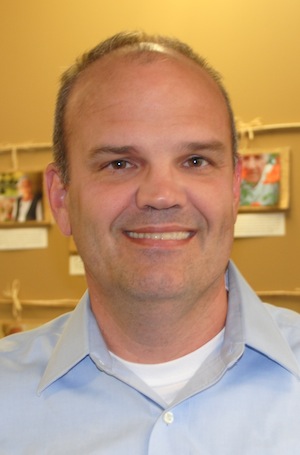 The Digital Medicine program at Scripps Health has appointed Dr. Steven Steinhubl to its newly-created director position. Steinhubl will work closely with Dr. Eric Topol, the director of the Scripps Translational Science Institute (STSI), a research consortium spun off from the Scripps Health Institute and sponsored by the National Institutes of Health.
The Digital Medicine program at Scripps Health has appointed Dr. Steven Steinhubl to its newly-created director position. Steinhubl will work closely with Dr. Eric Topol, the director of the Scripps Translational Science Institute (STSI), a research consortium spun off from the Scripps Health Institute and sponsored by the National Institutes of Health.
"I've worked with Dr. Topol now for almost 20 years," Steinhubl told MobiHealthNews. "I did my cardiology fellowship with him at the Cleveland Clinic and he's been a mentor and a friend since then. I'm hoping that's made it easier for him to relinquish the day to day stuff to me. ... Dr. Topol has always done the work of five people, so I'm hoping now he'll only have to do the work of four and a half people."
Like Topol, Steinhubl is a cardiologist. He previously served as director of cardiovascular wellness and a clinician-scientist at the Geisinger Health System in Pennsylvania. Before that he was a global medical vice president for the Medicines Company, where he oversaw development of anti-clotting medications. Steinhubl has worked as an interventional cardiologist at a number of academic and military hospitals, as well as serving in the Air Force from 1988 to 2002.
"I was at Geisinger Health System, and Geisinger is at the cutting edge of these integrated healthcare systems. As great as that was, I recognize there's still a great potential to change healthcare in the way that other industries have been changed over the years," he said. "It's a very antiquated system that is in dire need of complete re-engineering from the ground up."
In his new position, Steinhubl will be working on that charge by running clinical trials on mobile health apps and devices, which he believes are not currently being tested rigorously enough.
"Our job is to really provide the evidence that shows if these devices or apps actually work," he said. "There's a lot of things that we just assume they're going to work -- they sound really good, they make complete sense. But medicine is full of ideas that everyone said 'Oh this will work' and then it didn't -- and sometimes they even made things worse. Our primary goal is to run the trials that show if these [mobile apps and devices] work, how they work, and how they should best be implemented."
STSI, which received a $3.75 million grant last fall from the Qualcomm Foundation to run wireless health trials, has already been running a research study of AirStrip Technologies’ mobile-enabled remote patient monitoring offering. Next is a three-part trial called Wired For Health, Steinhubl said, that will study mobile health interventions for diabetes, hypertension, and heart conditions in an employee wellness context. The study will utilize wireless glucometers for patients with diabetes and a continuous-monitoring wireless blood pressure cuff for patients with hypertension. The third arm will use AliveCor's smartphone ECG, which patients will be able to use on the spot when they experience a heart event. The study is just beginning to enroll patients. According to the Scripps website, Qualcomm Life, Healthy Circles and Health Comp will also be partners in the study.
"If we're successful, and we have every hope and intention of being successful, I hope we'll be running a substantially greater number of trials -- some at Scripps some not even in the United States," Steinhubl said, adding that the center hopes to run trials in underserved areas in India and sub-Saharan Africa on technologies that can then be brought back to the United States.
Steinhubl said that although clinical rigor is as important as ever, the advent of electronic health records should change the way we do research.
"The gold standard has always been the randomized control trial ... and that's an RCT system that dates back to the 1950s and really predated our era where we have electronic health records and the like," he said. "Now we don't have to do our fathers' RCT, we have EHRs that capture all the data for our patients -- real world data. You get a lot more data, you can enroll patients in a real world setting, and you can enroll them more quickly."
Scripps intends to publish its trials in top-tier journals like JAMA and the New England Journal of Medicine. But Steinhubl said even then, change will take a long time.
"You'd like to think one good publication will change practice, but on average it takes 17 years to go from a definitive trial to the standard of care," he said. "A rigorous well-run trial focused in a recognized high-tier journal is a great starting point, but medicine is very recalcitrant to change. Our default mode is to practice the way we were trained, and making changes to it is difficult. And the changes we're making here aren't just going to be little incremental changes. It's gonna require a complete re-engineering of healthcare that not only will be great for patients, I think it will prove to be good for physicians too. It's going to require a lot of discussion, a lot of pushback, but I think that it's just necessary. ... We're going to have a lot of important and well-entrenched disbelievers that we're going to have to overcome and we're going to have to overcome it with results."




















